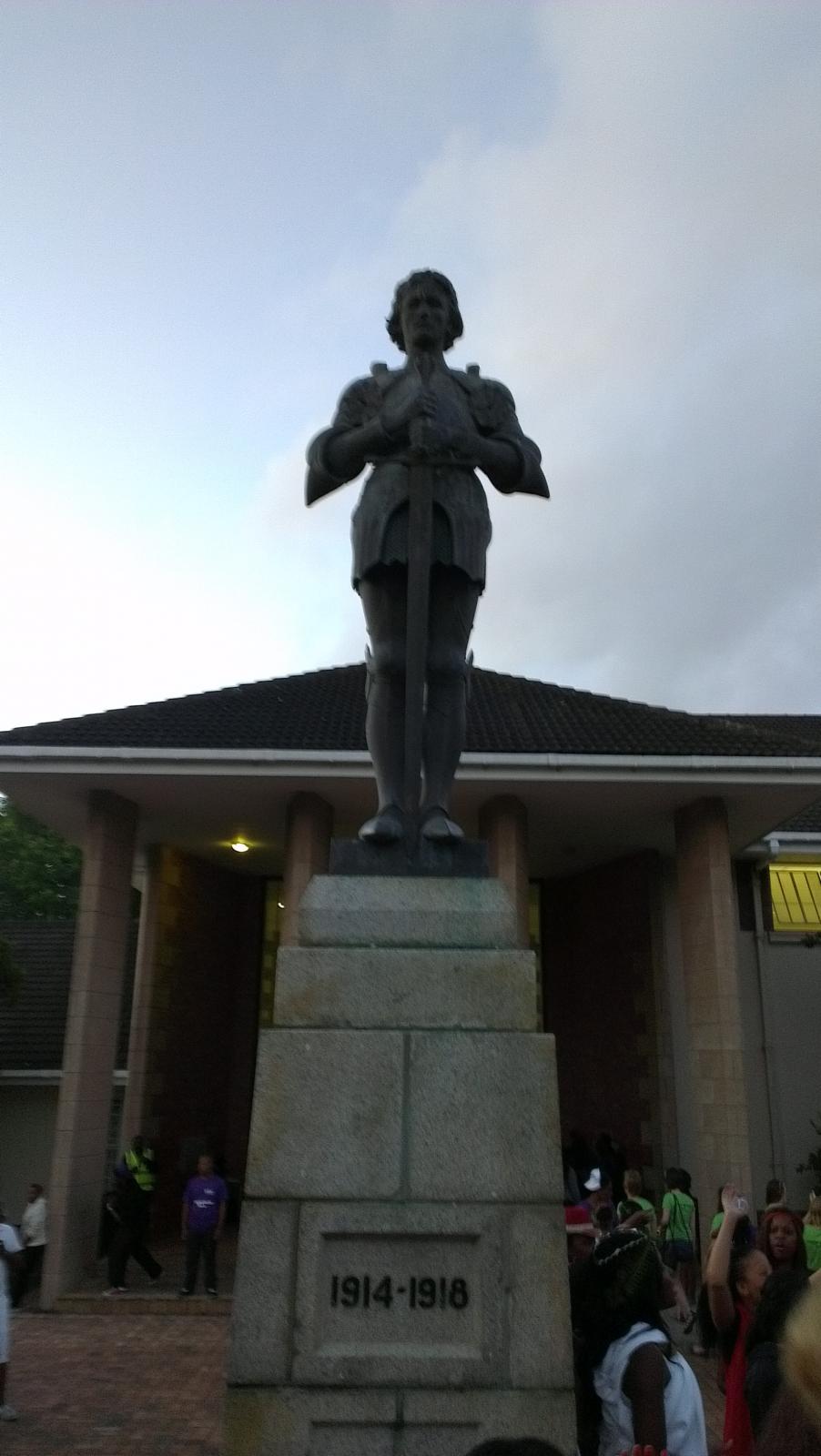A Redacted Archive
R is for Rhodes, as in (cecil john) Rhodes, who (still) has a university in South Africa named after him.
R is for Reputation, as in “it cannot be disputed that Rhodes University has, over its 113-year history developed and sustained an enviable reputation for academic and research excellence.
R is for rape as in rape culture.
When you’re a student in what has been un/fondly dubbed the purple bubble, these three Rs collate into a particular shared—and often redacted—Reality. It is precisely because this Reality is so familiar that you want to wash it off, to scrape it off your skin if you have to. It’s been there so long.
It’s this Reality that necessitated the #Chapter2.12 poster campaign on campus. It’s this Reality that made campus security pull them down. It’s this Reality that published eleven names in an anonymous Facebook post titled #RUReferenceList. It’s this Reality that had us knowing, even before we picked up our phones that night to call, exactly what that list was.
It’s a big story. It makes it into The News. Inevitably, this shared Reality becomes a debate, those who know vs. those who have no idea. With growing concern – yet again so familiar– we note the erasure, the lack of historical frameworks and the continuous use of unethical reporting practices in the media. An example: one article quotes various representatives from the university, yet not a single one of the excluded students. And then, the university still known as Rhodes re-released Bettie’s story, that of a ‘victorious’ rape survivor; a spit in our faces, a declaration that all our experiences with a violent, faulty reporting channels are patently false. Bettie is too good and too human to have been raped, and then she is too good and too human to be failed by the system.
The rest of us are… [redacted].
Recently, the university sent out its December 2017 Rhodes Alumni newsletter. It features the Old Rhodian Awards 2017, granted to ex-students who, “through their individual achievements, continue to enhance the reputation of the university.” Rhodes, Reputation. Two Rs. But there’s a chunk of Reality missing, and those of us who have been sitting with it, fighting it, taming it, praying it away, marching against it, learning to live with it… we don’t know what to do with it anymore. We don’t want it.
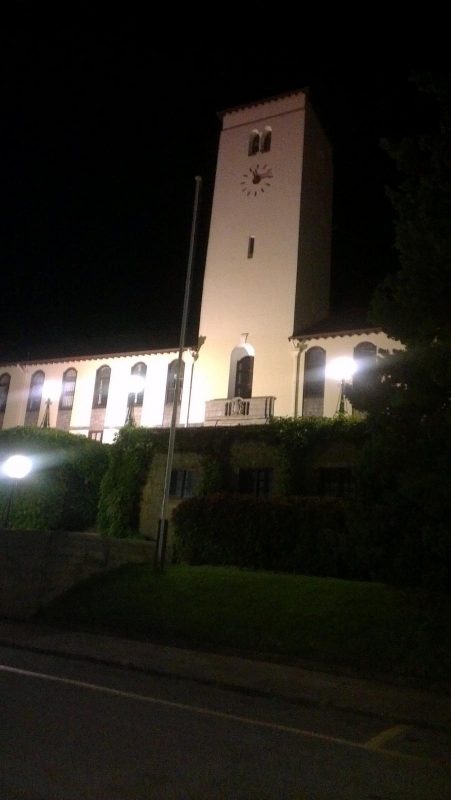
A Personal Reflection, by [Redacted]
On the fateful morning, I watched a student have a panic attack at the back of a police van. As she ran out of breath and her face ran out of life, this life we were fighting for, the police went about their terror completely unmoved. Her suffering and approaching demise seemed to energize them as they brazenly peeped inside the police van windows. In that moment, she was another black body in captivity; alive or not, she was in a cage, that’s where she belonged and that’s where she would stay. Their work was done.
I felt diminished. I had only experienced that feeling once before: on the streets of Johannesburg as I was walking with my mother. We were shopping and although always on guard, a man stroked my ass in a moment of distraction, then walked by with an accomplished smile. By the time I got mommy’s attention to let her know what had happened, the smiling offender was getting away and any attempt to pursue justice ourselves would probably place us in more danger. Although the violence was fleeting, it left me feeling like nothing.
So here I was again standing in the street feeling like nothing, except this time it was a collective nothing: for the womxn arrested for fighting for themselves and for me – the way I couldn’t.
Police institutions and police culture are perhaps the most glaring examples of how women are pervasively erased in South Africa. Women are dehumanised at police stations and in questioning rooms, and are finally humiliated on the stand.
That the institution is (falsely) premised on protecting the most vulnerable members of society is what makes it so brazen. My hope would be briefly restored on that fateful morning: the Vice Chancellor of Rhodes University begged the apathetic police to open the van and allow her to receive treatment. He stood on the firing line, placed his body as protection for student activists. It seemed like recognition that our plight was legitimate: the institution was protecting us in a country that thrived on burning us.
And then, in the following days, this same-same Vice Chancellor pushed a femxle student activist off a barricade in order to open the entry road and end the shutdown. That was painfully profound. In a bid to end the week long #RuReferenceList protest, his actions proved that the protest was necessary. That action pointed to the gendered power that feeds gender based and sexual violence in South Africa.
A middle-aged man in a position of power and authority--by profession, accolade, influence, age and gender--in a confrontation with a femxle student is a skewed power dynamic. But she stood her ground and refused to back down. Despite this daunting disparity, the activist refused to move. When the Vice Chancellor’s stature was insufficient, he used the final and most effective tool: brute force. However momentary, the VC’s use of force went beyond merely moving her impeding body. It emphasized the power that she refused to recognise.
That incident was proof that the macho dominance that fuels patriarchy is entrenched, knows no bounds and that no man is immune. The VC’s ability to instantaneously turn an ally into foe is frightening: when all else fails, use your hands. That moment was the proof for me that what it was intended to end was necessary, and ought to continue.
Dehumanising women is in the nation’s DNA, and the only way to remove it is to acknowledge its existence, dissect it, and purge it.
Afterwards, the VC apologized and reiterated the institution’s commitment to eradicating gender based violence. But it’s impossible not to doubt the sincerity of this commitment: the activist was expelled. For life.
The destructive patriarchy that prompted #RUReferenceList has used its most powerful tool, colonial institutionalism, to cage sexual violence survivors, activists and all womxn – sending a threatening message to us all.
YET, we will fight, we will stand our ground, we will continue to raise our voices and soon the whole world will know why the caged bird sings.
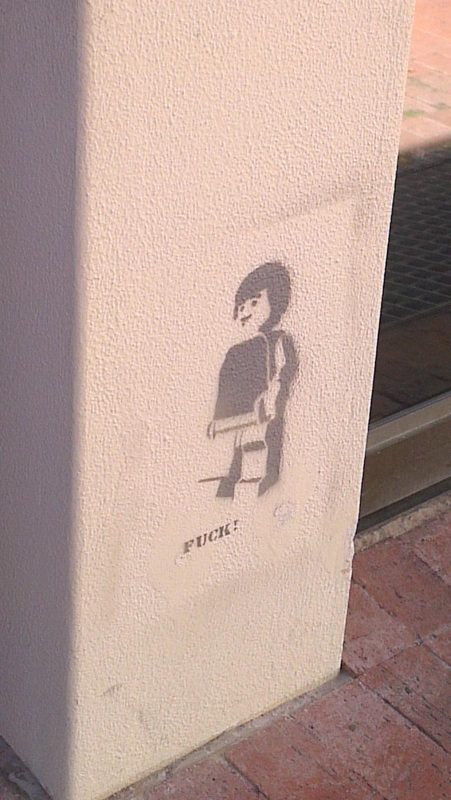
This is not the point, by [Redacted]
One of my first memories of Rhodes University is walking into the Eden Grove administration building, holding my Dad’s hand. I had just turned 18, and my heart was so excited: I was really here. I was about to be a student at the best journalism school in the country. A few weeks before, on my birthday, my parents had paid for my first ever glass of wine.
Fast forward four years…
I had just handed in my dissertation the week before and I’d been out drinking nabangani bami every night since then. We had just met through a mutual friend earlier in the night, but he ignored my closed body language. He picked me up, squeezed me. We had just met.
That night, I’d gone out dancing with my friends. Too much alcohol had been consumed, and this is not the point, but instead of stumbling back up the hill to our reses the way we always did after a night out, he offered my friends and I a ride. Too much alcohol had been consumed, but this is not the point.
We went to catch the sunrise at the Monument, my friends and I drunkenly reflecting on the year while he and his friends carried on drinking. This is still not the point.
That’s my last memory before waking up in a strange bed with my panties off, his fingers inside of me, begging him not to put his penis inside of me as he awkwardly slipped off his underwear.
Too much alcohol had been consumed. This is not the point.
I remember him bringing his penis close to my vagina with the words “just the tip, baby, just the tip,” and my brain shutting down as I braced myself to the fact that this was how I would lose my virginity.
He dropped me off at my apartment at the Post Grad Village. On the drive up, I sat in his car, stunned at what had almost happened to me. I forgot to say goodbye, but I remember getting out of the car, walking into my room, slowly and tiredly taking off all my clothes and climbing into the shower, broken. That was my last day at the University Still Known As Rhodes. Later that day, I had a flight taking me back home to my parents. I had not yet packed up my room, and I couldn’t bring myself to do more than throw a few items into my suitcase and get the hell out of Grahamstown.
A few years later, his name appeared on a list of names on Facebook. I had blocked him on all my social media platforms; he had tried to contact me and connect, afterwards. Seeing that list was triggering, not because of what had happened to me but because his name being on that list meant that he had carried on violating other girls on the same campus. No one had done anything, because I hadn’t done anything. I hadn't spoken up. Instead, I had packed my bags and walked away, literally. Like Solange says, I tried to drink it away that summer. Mina, who had taken part in the silent protest, year after year, protesting the war on women’s bodies.
Seeing his name on that list... A part of me celebrated. Finally, justice would come. I assumed that his being exposed meant that the University would protect students from him.
I was heartbroken and disappointed to hear the decision of the disciplinary committee regarding the #RUReferenceList anti-rape activists and protestors. No wonder it is the University Still Known As Rhodes. They continue to care about being the beacon of colonizer Cecil Rhodes’ toxic legacy; it’s no surprise then that the University hates black women’s bodies.
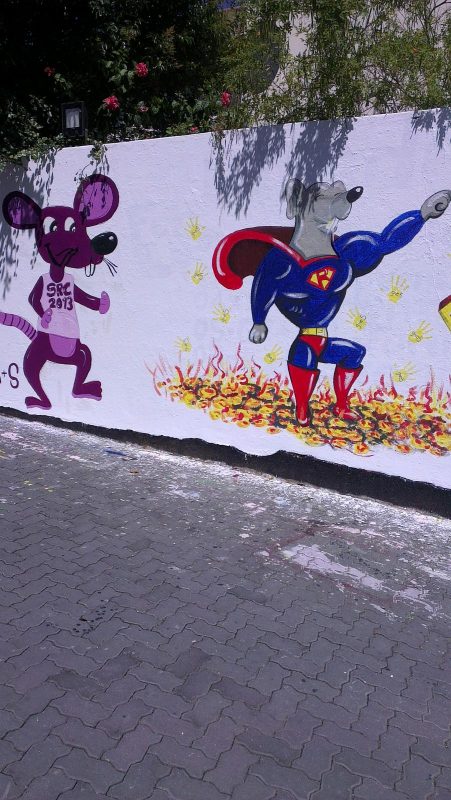
I am tired, by [Redacted]
Of fighting institutions like the one currently known as Rhodes. I am tired of attempts at transforming it, at decolonising it, attempts at making it intersectional, and queer, and pro-black womxn. It feels fitting, as I write this, that the University currently known as Rhodes has decided not to change its name.
What would it look like, for an Ellen Kuzwayo University to protect rapists instead of rape survivors? Mam’Kuzwayo would probably turn in her grave, and she does not deserve that.
So, I will not focus on that university anymore.
To everyone who has survived pain, and trauma at the hands of the colonial legacy of Rhodes. I am sorry. That those are the places we must go to learn, that our black mothers, grandmothers, aunts, and sisters must sweat cents from their pores so that we can get better. We were the ones with possibility to become "something better," the promise of the rainbow nation, of women empowerment, of a new South Africa. Is this not why our foremothers have suffered? That we get better, safer? Oh, the liberal university we could not call home.
They did not know, that "better" looked like rape scars and nights sweats filled with anxiety. It is not new either; black womxn have long learned to carry rape scars and night sweats. But it was not meant to be us. Freedom was not coming tomorrow. Tomorrow was here. Our blackness and womxnhood could no longer be used against us as weapons. The maggot-filled lies of inclusivity.
Whatever the fuck it was. Seldom better, it was never home.
To the women who went to get degrees and took rape scars with them as well. "Sorry" will never be adequate. No word will ever be adequate. I have no dreams of healing to sell you. I do not know what it looks like. Perhaps time, place, and space will heed forgetting. But how do you forget?
I was 17 when I went to Rhodes University. My mother made sure to buy new bedding, curtains, pyjamas. Hell, my mother even bought me a sexy red silk night dress with a red silk gown to match. It must have been a set of some kind, a set she had imagined wanting years ago. I was the first woman in my maternal family to go to university. A few days before we had stood at an FNB in the city centre of Pietermaritzburg, church street, depositing MIP. It was the last day of MIP payments, and although my mother could have done the transaction earlier, although she did not need to withdraw the cash and then deposit it again, she did. It was a warm day and there is something about church streets that makes them always full. It was hot, and full; my mother made my father drive from one bank to the next. The bank was full. My mother held the money in her hands, I filled in a deposit slip as my father tried looking for parking.
“Why didn’t you just do a transfer?” I asked uMa.
“Bengifuna ukuyiphatha, ngiyithinte, ngiyinuke.” I remember uMa saying. It was a lot of money. My mother deposited that money with so much hope. Of what I would become after.
I am now both my ancestors wildest and most reckless dreams. My mother paid for so much more than she will ever know. A lawyer, she hoped I would be then. Instead, I am an angry and tired black womxn who cannot find the words to say to every other woman who went to Rhodes. And I am not the lawyer she sent me to be.
Alwehlanga lungehlanga.
Sometimes, I go back to my mother’s house, where my silk nightdress has found permanent residency. It is tucked at the back of many other things she has bought me, that I will never wear. I hug that red nightdress. Holding every part of my mother’s dreams dearly – it’s all I have now. Forgotten dreams, and shattered hearts.
I pray you heal.
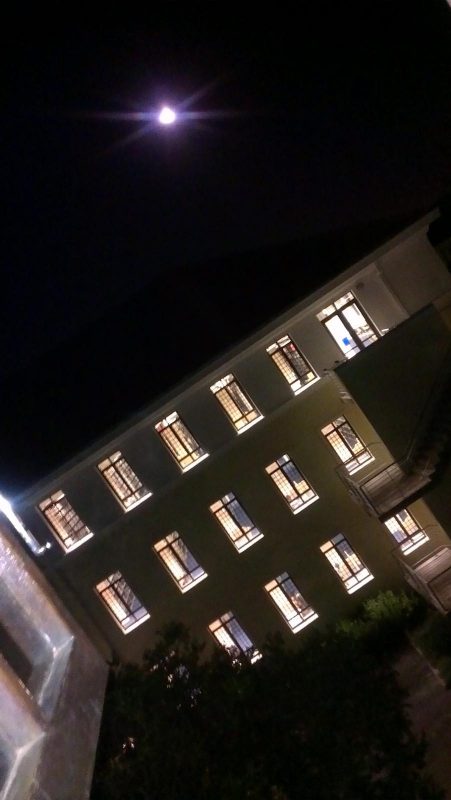
To my folks, by [Redacted]
I often think about when we decided I was going to Rhodes University. There was nothing profound about it. Rhodes was just the first university to accept me.
Thanks to high school, my knowledge of Cecil was so minimal and sanitised, I hardly paid attention to the name. When I told people where I was going, I had to explain that I was not going to Oxford and did not have a Rhodes scholarship. But once in a while I met somebody who would talk about the university’s reputation with impressed stars in their eyes. When this happened, I was proud of myself, of my decision, and of the beginning of my independence.
My first week there, I met a boy. He was a friend of the only friend I had made so far. One night, we made out at Prime. He took this as a sign of my interest in him, though I was just drunk and excited. The next day, he made it clear that he wanted more. I made it clear that it was not going to happen.
He did not listen.
After he grabbed me in public, both in broad daylight and after dark so that I could "hear him out." After he cussed me out for refusing to meet him by the library. After he stopped me in the street at 3 a.m. after my first bar-tending shift, and wouldn’t let me go until he gave me a hug.
I went to campus security, after that, and reported him.
After that, he left me alone. After that, he would stare me down when we crossed paths, so I stopped going to parties he might attend; I asked to change shifts when he showed up at my workplace. Several months after that, I learned from a friend that I was not the only person to report him. He could and would take things as far as he wanted to, I learned; he had already done so with her.
That day in my first year, I realised I did not want to be in this place. I stayed. Through four years of fear that he would come back, through my relationship with a boyfriend who did not understand how I could say no, through employment by a man who would show up at my house, at night, after I said he was not welcome.
I used to wonder where things could have gone differently. This is how I became a storyteller.
I didn’t report any of the men after that first time. There was no point. Depression and anxiety made it easier for me to withdraw into myself, until #FeesMustFall in 2015. And when that proved the same disappointment--when an institution refused to take accountability for its discrimination, and when men told us to pick the Black struggle before the womxn’s struggle--I collapsed once more.
When #RUReferenceList happened, I finally felt a kind of belonging. Scrabbling for justice, organised movement, messy histories, just trying to figure this shit out... that’s pretty fucked, to have to belong there.
I want to say many other things about my time there. The only good thing that came out of it are the Black womxn I came to call my friends and family, who did the work there long before I got to the university still known as Rhodes, who are still doing the work there, who have left, who have survived, who are still learning how, who have not (yet). They have taught me, Aluta, as always, but sometimes also rest.
I still think about when we decided I was going to the university still known as Rhodes. If I knew then what I know now, I wouldn’t. I don’t believe we needed that place as a medium for meeting the family I did, and I wish more than anything that I had not been walking home alone at 3 a.m., that I had not said yes to drinks with that man, that I had not smiled back the first time my boss was a sleaze. I don’t believe we needed that place that’s been purging survivors and protecting violent men since its very naming.
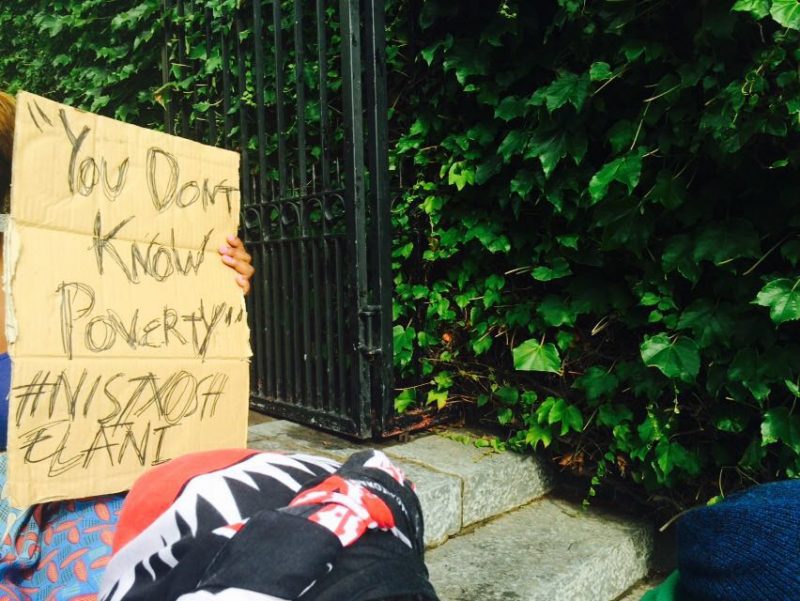
Dear 21-year-old me, by [Redacted]
Happy birthday, my love. I know you don't really feel like celebrating. It's been a few weeks since Jacob assaulted you and you’re in a lot of pain. You feel ashamed. You are blaming it on yourself because you don’t yet understand what sexual assault is. No one told you it could look like this. No one taught you about coercion. You think all this pain is a punishment for you wanting to explore your sexuality, for being sexual in the first place.
It isn’t. This isn’t your fault.
Jacob violated you. He ignored your boundaries (which you had communicated clearly). He disregarded your humanity. That's on him, not on you. He had no right to pressure you. You're allowed to change your mind. And you deserve to have your "No" respected the first time you utter it. I’m sorry he didn’t listen.
Right now, you still believe in justice. You still believe that people are not inherently bad. That they wouldn’t hurt you deliberately. You believe that if Jacob understood the impact of his actions, it would stop him from assaulting and hurting others. This belief is what will lead you to mediate with Jacob.
Spoiler alert: Jacob goes on to assault other women. I'm sorry that when you find this out, and when you try to open a disciplinary case against him, you will be told that you already forfeited your right to that process by agreeing to mediation. I'm sorry about the people in Rhodes administration who lack the political will to rectify these rules and who minimize your pain. I’m sorry the people who have the power to help also lack the imagination and backbone to come through. I’m sorry about the endless stream of disappointment.
A few years later, when #RUReferenceList brings these institutional failures to light, Rhodes University will choose its name and reputation over you. They will co-opt your political work and erase you. How could I prepare you for how it will feel to hear the Vice Chancellor declare, time and again, that “Rhodes University would never protect a rapist”? With every press statement they issue, you will become intimate with a new layer of their violence. You’ll watch an institution cover up their complicity and frame themselves as heroes.
I wish I could tell you it gets better. It gets less lonely, I guess. Eventually, you’ll find community in brave, beautiful people who understand this pain. You’ll fight together. But mostly it gets worse than you ever could have imagined. There’s no inspiring ending. There’s no good news to justify the pain. Fight anyway. Fight for the version of justice you believe in. Despite the invalidation you’ll face, that will always be the justice you deserve(d).
Thank you for fighting to get me here. I know it doesn’t feel like it, but you’re doing good. I’m proud of you and I love you.
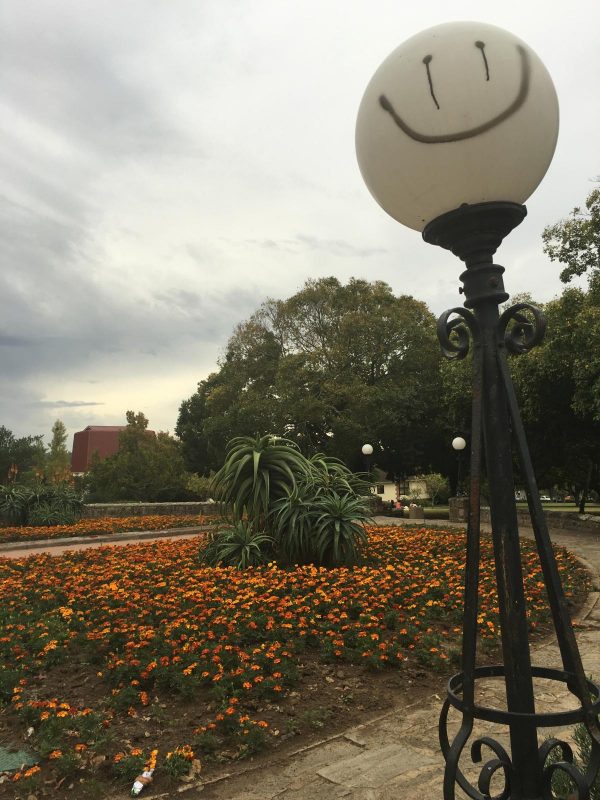
To Cecil John Rhodes, by [Redacted]
I would write to the university, but your spirit animates the place. I bet there’s a perverse shrine dedicated to you in one little hoekie of the council chambers.
You see, you’ve been slinking along, inciting fear, hatred, and violence, and your presence is unwelcome. Well, it’s never been welcome. To be honest, I don’t know much about you but you seem terrible and your university is too. I don’t know if you’ve ever felt uncomfortable in your skin? Your body? The feeling is like a dampness, like when you take clothes off the line because you think they’re dry, but when you wear your favourite top, it clings to your skin, smells rotten.
“You look beautiful in that top.” But you know, the outsides don’t match the insides.
At Rhodes University I became sick with an invisible affliction, one that dragged me, flung me around, stabbed me, made me weak. I smelt rotten. I thought I was the problem but after speaking to some other troublemakers, we all determined that the cause was external. Your handmaidens and foot-soldiers, have been doing a great job, business as usual. Brutal, careless, bloody. Usually liars, too. Unusually good at maintaining the quaintness of coloniality. Nothing must tarnish the image! Those words, "business as usual," time and time again until they lose their meaning. Did you know your management speak garbage all the time? Anyways, I digress.
I am writing this to inform you, Mr Cecil John Rhodes, to leave. See, Cecil, we don’t want to rebuild a university premised on those things you glutted yourself on: genocide, capitalism, domination. We demand empathy, love, and consideration.
You have less than 24 hours to vacate the premises. Entirely. Take all your possessions with you. The university troublemakers and terrorists will be on guard to defend the university with necessary force and in ways we/they see fit. Don’t get the courts involved.
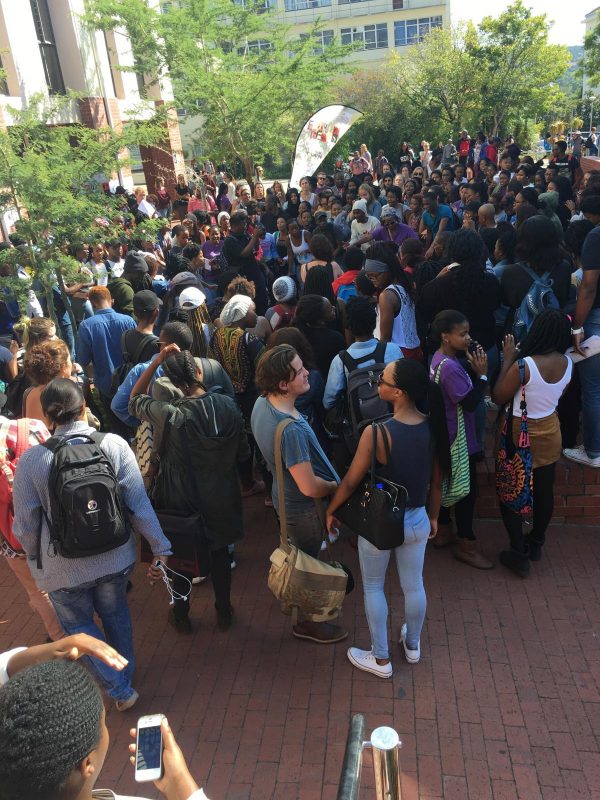
Did you do anything? (Or A Story of Not Reporting), by [Redacted]
I once had a dream that I was going to take my unborn child and we'd flee, just us, to live in small town somewhere in the Eastern Cape. I had no money, and the dream stopped there: Would I hitchhike? Would I live on the streets? If I thought about it too long, the dream became a nightmare; I tried to abort the baby any way I could, or I discarded it after birth. No one would know what had happened.
I learnt that when a person is so unsupported, there is no thought that is too desperate, no measure too severe. The shame ate me up every night, when I’d go to bed punching my stomach. High or drunk, and alone.
I went to the SAN after the event, after a morning after pill didn’t work. And when the nurse asked me if I had had sex, I couldn’t answer. My first experience of sex with a penis was a near rape. A violent, groggy sexual assault. I didn’t have any other experience to base this one off of. So extreme was my terror, I couldn’t remember what had happened. I didn’t know if rape is sex or sex is rape. She was unhelpful, and smirked at this reckless thing, asking for help with something she had forgotten. A pregnancy test was taken, and it was negative. I never went back. I tried to take a shower, started undressing, cried, put all my clothes on and got high instead.
I couldn’t eat much because my perpetrator was in my dining hall. The thought of him in the same room as I ate and nourished a child that was potentially partially his made me ill. I vomited a lot that year. I could stomach coffee – and after hearing that caffeine could naturally induce abortion, I drank a lot of it).
No-one could really tell – or if they did, they didn’t ask why. I think, maybe, I made them a bit scared. I think the people around me knew they were letting me down consistently. This happened in my first year. I had no friends I could confide in – I mean, I didn’t know even know what had happened to me. Silent Protests came and went – like most perpetrators, he had a shirt on too.
When I began to trace my fingers around the words to describe the experience, I thought it was too late for action. Two years had gone by, this person had graduated and… well, I was still taking pregnancy tests to assuage a deeply rooted fear in a still violated womb. I hated men touching me. I snarled if one dared. I snorted anything I could get my hands on. I self-medicated because there wasn’t anything else in my power to do and it was easier to find R5 shots than the counselling centre. And when I did find the centre, it took persistence on the part of a friend to help me through retraumatising sessions to find some semblance of a safe space with a different counsellor.
It doesn’t end there, but you know that, don’t you?
If you asked me how I survived, I cannot give you an answer.
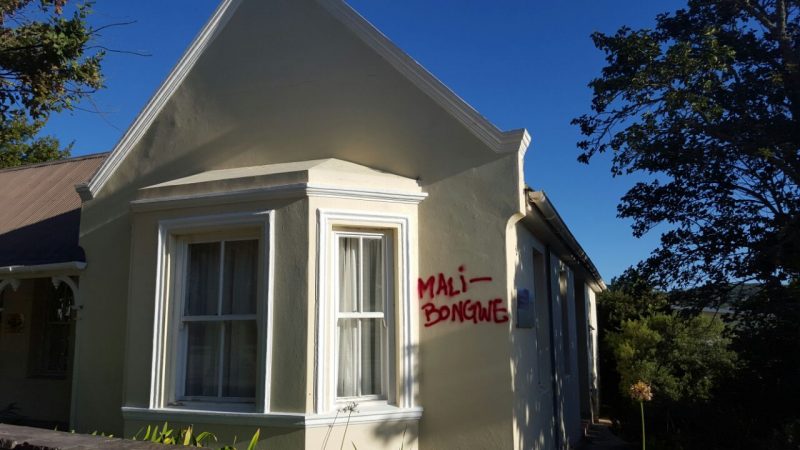
A letter to my younger self, by [Redacted]
It is January, 2002: you have just turned 18, and you are excited at leaving home to live in Grahamstown. You somehow think (through no personal failing on your part, I assure you!) that getting a degree will be a solution to the problems of life. You have been fed on a steady diet of this myth, and—as you will soon find out—so have many black children.
You spent your birthday at the bank, begging for loans. The Minimum Initial Payment is due in a few days, and you have gone with your mother to ask for loans from all the different banks in town, but all were rejected. Things have gotten so desperate that your mother made a last-ditch attempt to get a long overdue papgeld from your father. Like many black women who are also single parents, your mother has debt up to her neck.
You don't yet know what institutional racism is, or how patriarchy sets up black women to cry and perform poverty in air-conditioned offices. In the case of the University-Currently-Known-As-Rhodes, 92% of the office bearers are white men. And so, you will internalise the shame and humiliation of poverty. You will meet other black students, like you, who have invented siblings and fantastic poverty stories in order to qualify for NSFAS. This is the first effect of the institutionalised racism and violence on your psyche, but it gets worse. You still believe the university’s PR that education will be the key to dealing with poverty: if you raise your issues, in a civil manner, you will get the reforms. Where Leaders Learn!
You will later think differently.
You will mobilise with other students who see injustices happening at the university and who demand justice. One day, while walking back from the library, you will see a student putting up posters with the name, picture, and student number of a student who raped her. Campus Control will take them down before lectures start the next morning. But you will remember. And you will learn how many ways and how swiftly an institution moves to protect a violent man from a bit of a reputation pickle.
Later, you will be protesting with other students who find it hard to cope with the worldview of the institution. The institution identifies troublemakers, and you will be one of them. After a whole debacle with missing exam scripts, NSFAS not paying for your fees anymore, and endless bureaucracy you will become what they call “financially excluded.”
You will learn a lot that year. For what will be the first time in your life, you will not just be aware, but conscious, about what it is to be black in predominantly white institutions. You will question the relationship between the University in Grahamstown and the black community eRhini. Rhini and Grahamstown are not the same world: you will become conscious of how that affects the way black people are perceived, the way they are treated, and the many ways they can be silenced when they seek change. You will learn to question what is really going on when you read – how many years has it been now, since you were there? – about student activists involved in anti-rape protests at the campus being permanently excluded while a convicted rapist at the university is excluded for just ten years.
You will learn that these punishment tactics work. When you come back to University the following year, your peers caution you against “starting trouble” again. That year, you will keep your head lower, your voice will tune itself into a whisper. You will learn not to ask people why they drop out of university or why, when they are born in Grahamstown, they don’t attend a University down the road. It gets better. You will learn resistance.
